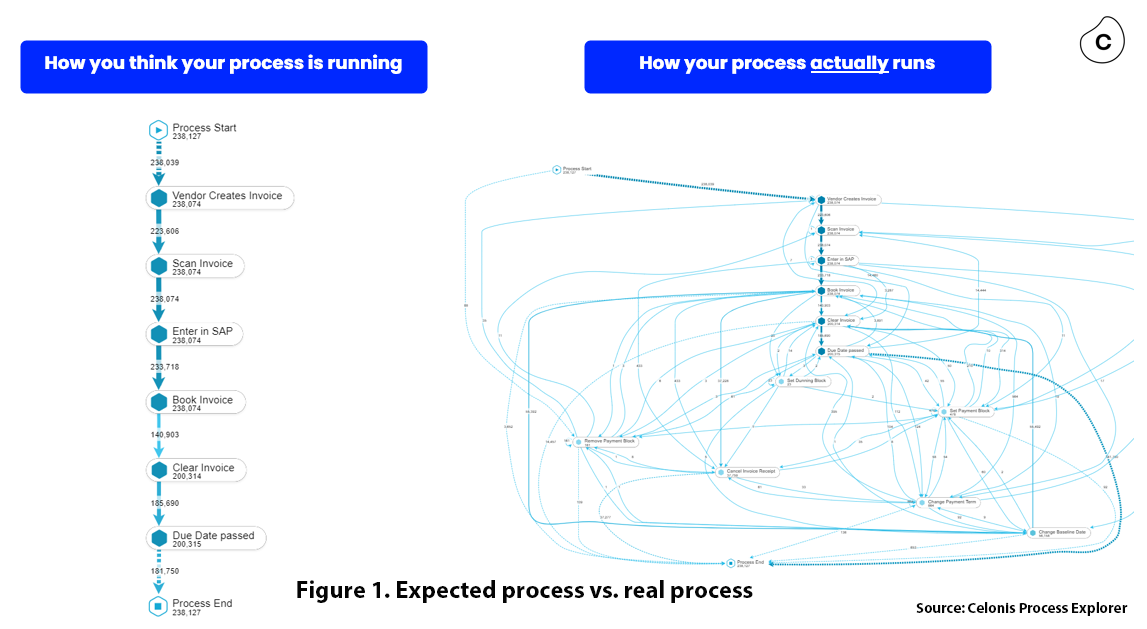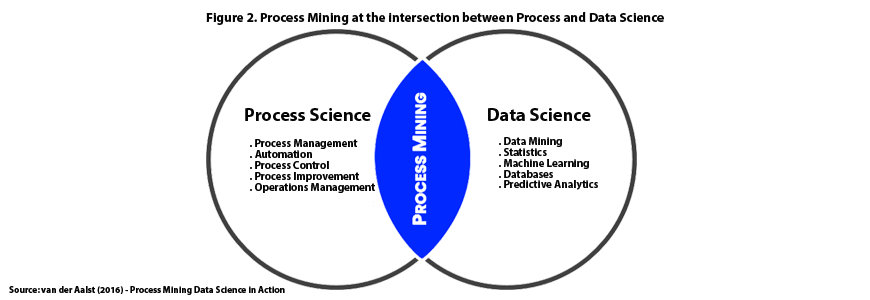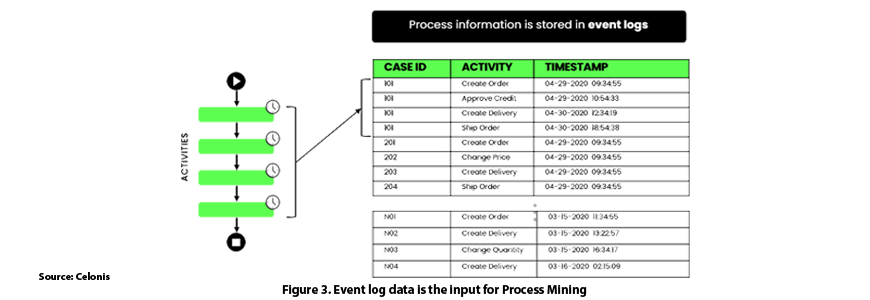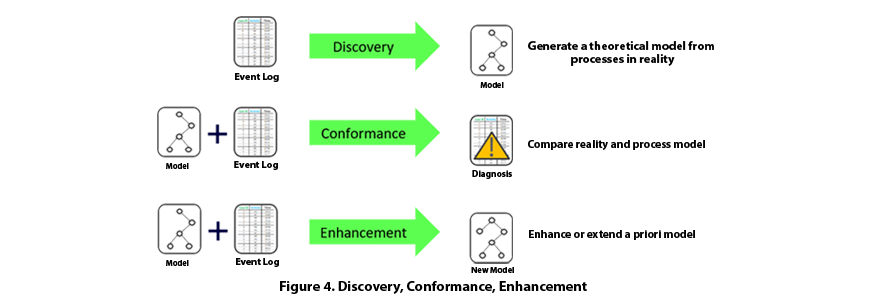Processes are at the Heart of any Organization
Our daily lives are filled with routines, such as getting up in the morning and driving to work, working out at the gym, searching/comparing/buying goods online, and more. Routines are important to keep our lives and work on track.
Also for organizations - such as companies, administrations, hospitals or universities - such routines are the key to making them work. Routines are also referred to as "processes." Processes take place everywhere, for example in manufacturing to build a car, at the airport, when boarding an airplane, when visiting the town hall to get a new passport. In every company there are hundreds of processes, e.g. in procurement, sales, accounting, production or customer service.
Today, many of these processes are supported by IT systems. For example, the production management system at a car manufacturer, the ticketing system at the airport, or the administrative software at city hall to process your passport application. These IT systems store information about what, when and in what context a process was executed.
Process Inefficiencies - 80-20 rule
What we often see is that 80% of the processes run smoothly and without problems, and that 80% of the process instances cause 20% of the work that is done in that process. But then there are 20% of the cases where we see problems, bottlenecks, inefficiencies or exceptions. These 20% of problematic cases account for 80% of the work, cost a lot of money, and cause frustration for customers and employees. In Figure 1, you can see a comparison of the expected process flow (left) and how processes typically run in reality (right).

To avoid these painful, costly and dangerous process problems, we need such technology that understands when and why such problems occur. Process Mining comes with these features.
Process Mining is Data Science in Action
Process Mining is at the intersection of process and data science. It is a data-driven technology that takes the data stored in IT systems and, like an x-ray machine, scans the event data, pinpoints problems, and helps prevent those problems in the future.
Process Mining is the only mining method that allows you to uncover process flow. It provides objective, evidence-based insights derived from actual data to help you audit, analyze and improve existing processes by answering both compliance and performance-related questions.

Process Mining vs. Data Mining
The term process mining comes from the field of data mining. The concept is to "mine" data for insights to answer questions or solve problems. In data mining, the search is usually specific to an identified challenge or obstacle. While Process Mining has some similarities to data mining - in that it analyzes Big Data to support business decisions - Process Mining applies specialized algorithms to event log data to identify trends, patterns and details of how an entire process is performing, rather than just a single inefficiency.
Event Log Data
The key data for Process Mining is event data. An event log is a summary of process events. Each event is defined by an activity, a timestamp, and a case ID. This type of data is commonly stored in any kind of transactional IT system.

Three Main Types of Process Mining
Discovery: To make sense of process data and understand where problems occur, we need a "translator" that takes the process data and makes it transparent. In Process Discovery, we use special methods and algorithms as translators to visualize how processes actually ran and where/when problems occur.
Conformance: Conformance compares the actual process identified in the discovery phase with the target process model. This comparison shows where the real process deviates from the target process.
Enhancement: Seeing what and why a process problem occurred (Discovery and Conformance) is backward looking. To truly improve processes, we need to avoid problems in the future and be proactive. For example, instead of stopping the boarding process due to technical problems, the airline wants to be informed before the problem occurs. In Process Enhancement, we use specialized methods such as machine learning to predict if, when, and in what context process problems might occur, and inform the user (e.g., the airline) before the problem occurs.

Process Mining creates Business Impact
In our modern digital economy, companies need to operate at maximum capacity to stay ahead of the curve. To do this, they need flexible processes, and this flexibility can only come from a deep understanding of how things work and where shifts are possible.
- Which vendor gives you the best chance of meeting a committed delivery date?
- Which employees are not following the process?
- Which of your channel partners are downselling rather than upselling?
Process Mining provides answers to these and other questions. In addition, you can use Process Mining to quickly audit your processes. Many companies use Process Mining for ongoing monitoring and optimization. This allows them to identify potential problems before they have a negative impact. In this way, they ensure that business operations are cost-efficient, compliant, and several steps ahead of the competition.
Process Mining is widely used
More than 50% of Fortune 500 companies are already using Process Mining to analyze and improve their business processes. L'Oréal, for example, is discovering ways to maximize capacity in their order-to-cash process and increasing their touchless order rate by 800%. Siemens uses Process Mining for more than 6000 employees worldwide in over 70 ERP systems to maximize the execution capacity of their processes on a global scale. And Astra Zeneca uses Process Mining as the main catalyst for their digital transformation journey. And, thousands of consultants around the world also use Process Mining to execute digital consulting projects.
Process Mining is an emerging technology with many exciting opportunities. With upcoming challenges such as rapid digitization, global supply chains, and more complex customer needs, companies need to understand their processes and be able to respond to them in order to remain competitive. Disruptive technologies like Process Mining will certainly play a big role in the battle to overcome these business challenges.
The Future: Turn analytical insights into operational actions
Process Mining can give you complete insight into how your processes are actually running and identify the inefficiencies and execution gaps that are hindering your KPIs, as well as their root causes. However, companies that want to take action based on these insights can go one step further, i.e. use Process Mining as a continuous method to improve the process during execution.
In the future, organizations will use a full set of process improvement tools, including Process Mining, AI, and Process Automation, to not only figure out what's going wrong in their processes, but to take automated, intelligent action to fix it. The resulting continuous process improvement increases their ability to execute and achieve better and better results. Analytics creates insights, the future is in deriving action from those insights!
The Process Mindset becomes an important skill for every Student
Process Mining comes with a unique perspective on data. It looks at the dependencies between process activities and the results produced by the interaction of these activities. Combined with the power of automation, AI and machine learning, this is creating a new field of data analytics for many companies and organizations.
A key success factor for Process Mining is talented people who implement and execute Process Mining initiatives in organizations. There are already thousands of jobs in this field and many new positions will be created in the future. New job roles are emerging such as Process Mining Consultants, Process Mining Analysts, Process Data Engineers and many more. Learning about Process Mining is a valuable investment in your and your students' careers. The Celonis Academic Alliance offers a full suite of free online courses and industry-leading certifications in Process Mining.
Read the Process Mining “Bible” by Professor Wil van der Aalst - the Godfather of Process Mining: https://www.springer.com/de/book/9783662498507
About the Author
Jerome Geyer-Klingeberg is Head of the Celonis Academic Alliance and responsible for the global research and education program at Celonis. He is also an educator at several universities and published 30+ journal articles, conferences papers, and book chapters in the field of Process Mining and other fields of Applied Data Analysis.